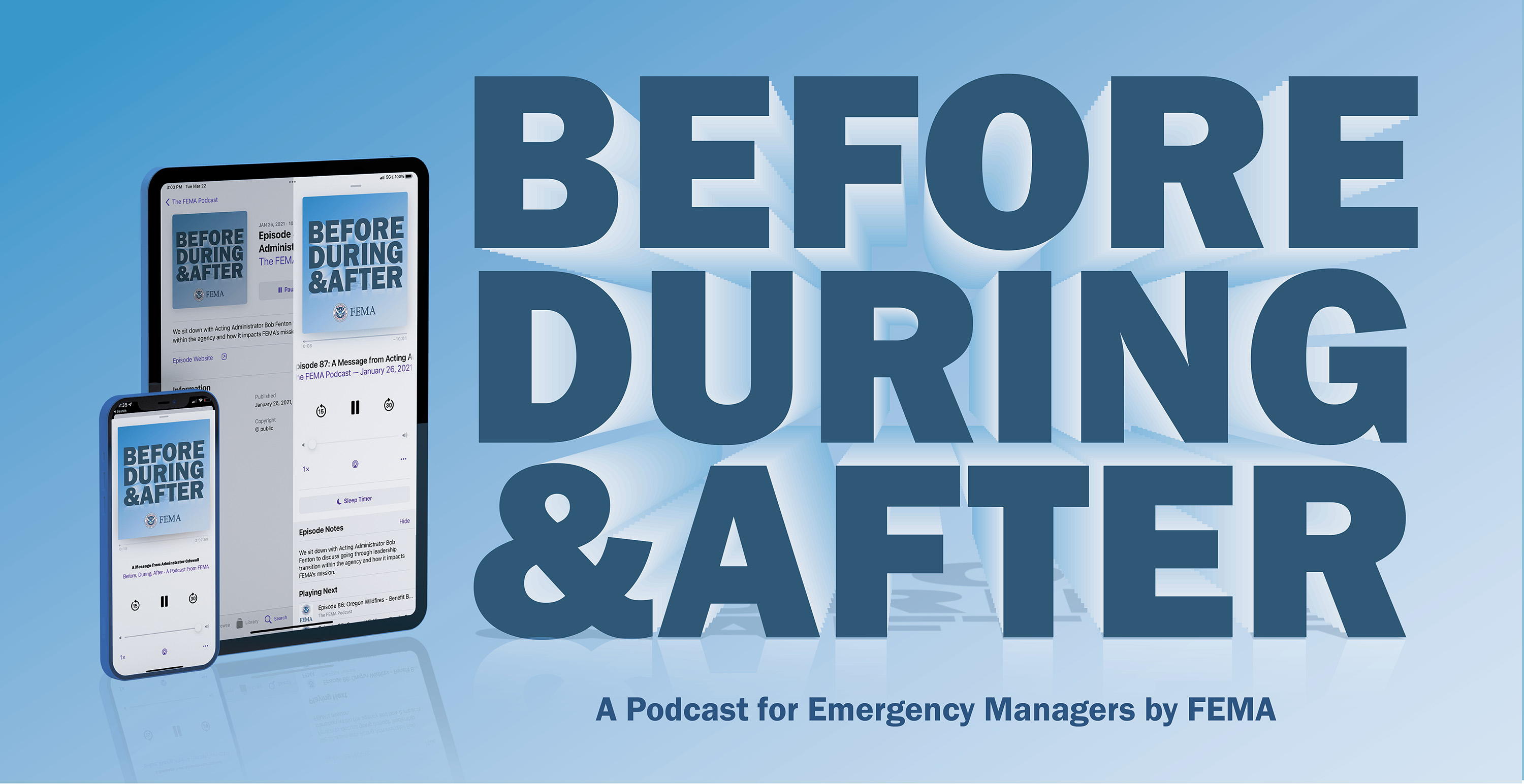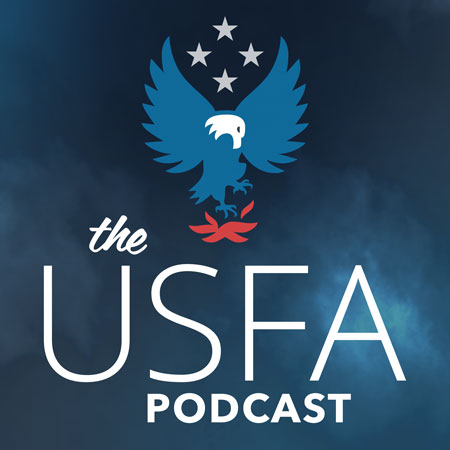
"Before, During & After" is a podcast for emergency managers. Join us for insights into where emergency management is headed, conversation about preparing for the threats of tomorrow and how everyone has a role in keeping communities safe from disaster.
Join podcast host Mark Peterson as we cover FEMA’s work in implementing its strategic plan, as well as recent disaster recovery efforts and resources available to better prepare for future risks.
Listen to the Podcast
Latest Episode
Episode 142: One Health - Balancing Human, Animal, and Environmental Health After Disaster
In this episode, we're diving into the One Health approach, a holistic strategy that aims to sustainably balance human, animal, and environmental health. One Health recognizes that the wellbeing of humans, animals, plants, and ecosystems are interconnected and interdependent.
Downloads:
Search All Podcast Episodes
On this episode, we're veering a little bit away from the traditional emergency management topics to highlight and integrate a new approach to some potentially very difficult response situations. Today, we're diving into the One Health approach, a holistic strategy that aims to sustainably balance human, animal, and environmental health. One Health recognizes that the wellbeing of humans, animals, plants, and ecosystems are interconnected and interdependent. Historically, public health emergencies like disease outbreaks have focused on human medical responses. However, integrating human, animal, and environmental health considerations can lead to a more effective solution. So today, we'll explore examples of how One Health principles have been applied to increase resilience and reduce disease threats. And also provide a new perspective on the intersection of public health and emergency management.
In the aftermath of disasters, when FEMA's assistance begins to phase out, the critical role of philanthropic organizations becomes increasingly apparent. In this episode, we explore how disaster philanthropy functions from the initial response phase to long-term recovery and resilience building. We'll delve into real examples of how philanthropic support has made a difference in communities across the country—from providing immediate aid to vulnerable populations to investing in long-term recovery initiatives. We'll discover how these organizations work hand in hand with local stakeholders to build resilience and create sustainable solutions and uplift communities on their journey towards recovery and resilience.
We're diving into a monumental topic for August, which is National Resilience Month, and it is all things Hazard Mitigation Assistance Grant programs, or HMA grants. These programs play a critical role in helping communities across the nation reduce the impacts of disaster. So, we're gonna be exploring how the grants work, the types of assistance available, the benefits they bring to the communities, and understand the application process to highlight successful projects. We'll cover everything you need to know about leveraging these grants for disaster mitigation and resilience. So, whether you're a community leader, emergency management professional, or simply interested in the disaster resilience project and what FEMA and the federal government have to offer, you're gonna have an opportunity to be informed and engaged throughout this episode.
If financial resiliency is an individual or family's ability to handle financial shocks and adjust to financial changes, there is no greater shock than a disaster. They cause both short and long-term financial challenges for survivors. While at times complex, financial resiliency is also full of opportunity to improve our ability to adjust and overcome those challenges that directly impact our ability to recover from emergencies. So, on today's episode, we focus on building financial resiliency before, during, and after disasters, and how financial resilience is far beyond building a savings account.
April is Emergency Communications Month, and our friends at CISA are honoring the nation's emergency responders and communicators, emphasizing the importance of emergency communications and the need to work together in building resilient, critical infrastructure. In keeping with the month's theme of resilient together, on today's episode, we are talking about the CISA and FEMA partnership, and the steps partners can take towards resilience through highlighting key resources like GETS and WPS and other tools to help prepare for and respond to emergencies.
Subscribe
FEMA's "Before, During, After" podcast is available on Apple iTunes and Spotify to stream or download. Approximately 20 to 30 minutes in length, new episodes are posted bi-weekly and include transcripts.

Questions or comments? Send an email to FEMA-podcast@fema.dhs.gov.
Partner Podcast

U.S. Fire Administration Podcasts
Join the U.S. Fire Administration (USFA) and our nation's fire and emergency medical services (EMS) experts as we learn to reduce fire and life safety risks to our communities and emergency responders.
Listen to Episodes



